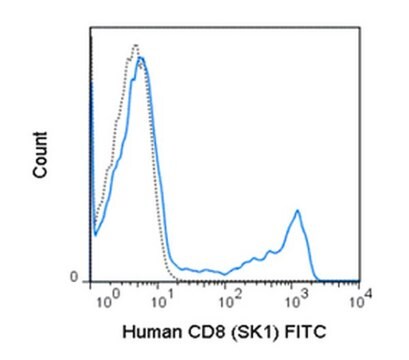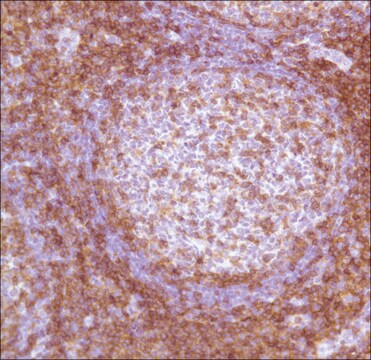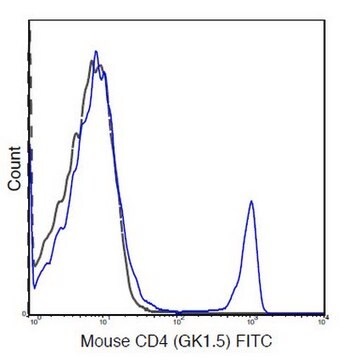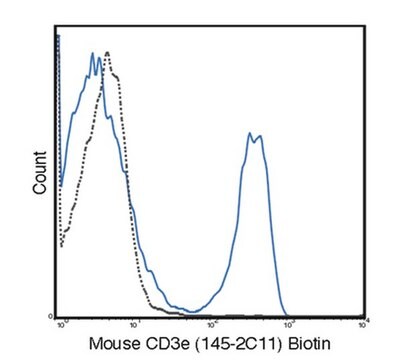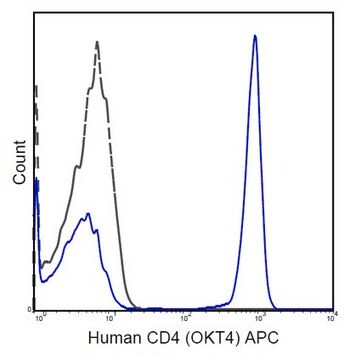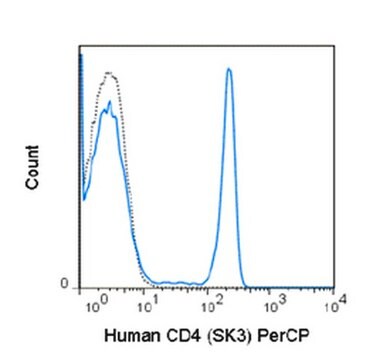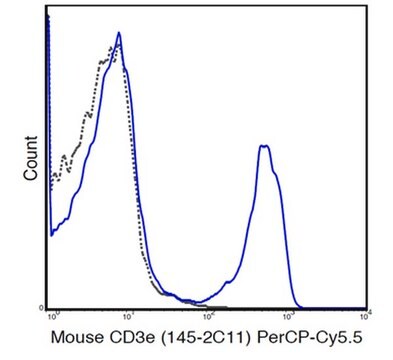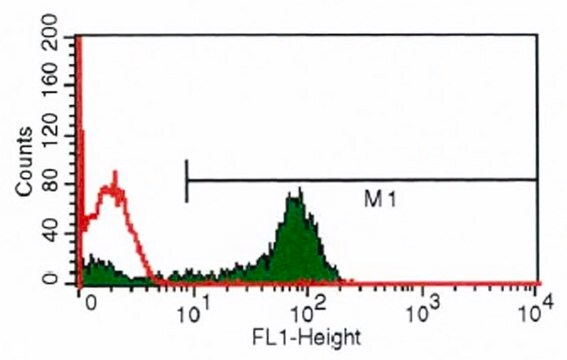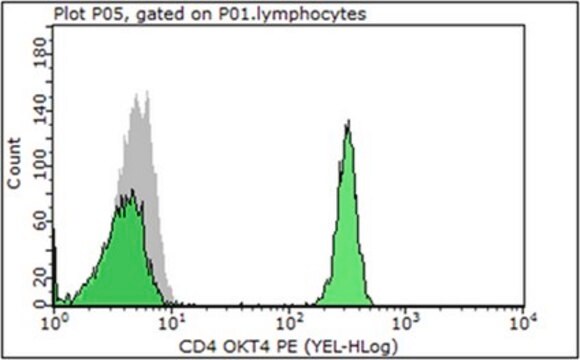MABF172C
Anti-CD4 (human), violetFluor® 450, clone RPA-T4 Antibody
clone RPA-T4, from mouse, violetFluor® 450
Sinonimo/i:
T-cell surface glycoprotein CD4, T-cell surface antigen T4/Leu-3, CD antigen CD4, CD4
About This Item
Prodotti consigliati
Origine biologica
mouse
Livello qualitativo
Coniugato
violetFluor® 450
Forma dell’anticorpo
purified antibody
Tipo di anticorpo
primary antibodies
Clone
RPA-T4, monoclonal
Reattività contro le specie
human
tecniche
flow cytometry: suitable
N° accesso UniProt
modifica post-traduzionali bersaglio
unmodified
Informazioni sul gene
human ... CD4(920)
Descrizione generale
Immunogeno
Applicazioni
Inflammation & Immunology
Immunoglobulins & Immunology
Qualità
Flow Cytometry Analysis: 0.25 μg from a representative lot detected CD4 in one million human peripheral blood lymphocytes.
Stato fisico
Stoccaggio e stabilità
Note: It is recommended to store the product undiluted at 2-8°C and protected from prolonged exposure to light. Do not freeze.
Altre note
Note legali
Esclusione di responsabilità
Non trovi il prodotto giusto?
Prova il nostro Motore di ricerca dei prodotti.
Codice della classe di stoccaggio
12 - Non Combustible Liquids
Classe di pericolosità dell'acqua (WGK)
nwg
Punto d’infiammabilità (°F)
Not applicable
Punto d’infiammabilità (°C)
Not applicable
Certificati d'analisi (COA)
Cerca il Certificati d'analisi (COA) digitando il numero di lotto/batch corrispondente. I numeri di lotto o di batch sono stampati sull'etichetta dei prodotti dopo la parola ‘Lotto’ o ‘Batch’.
Possiedi già questo prodotto?
I documenti relativi ai prodotti acquistati recentemente sono disponibili nell’Archivio dei documenti.
Il team dei nostri ricercatori vanta grande esperienza in tutte le aree della ricerca quali Life Science, scienza dei materiali, sintesi chimica, cromatografia, discipline analitiche, ecc..
Contatta l'Assistenza Tecnica.